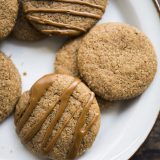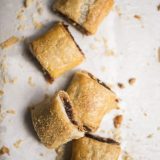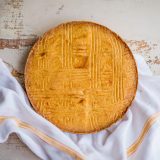Pick up the original 1896 edition of The Boston Cooking School Cookbook and you will find that it does not contain a cookie chapter. Yes, there were "gems," tiny oval-shaped mini-cakes baked in cast iron gem pans, biscuits, rusks, muffins and the like but the cookie as we know it today was not to be found. Cookies are of European origin; the word cookie comes from the Dutch “koekie” which means “little cake.” Gingerbread has been around since at least medieval times; oversized (some three feet high) likenesses of royalty were baked and sold by street vendors in London and pierniki, the peppery Polish gingerbread has been around since the signing of the Magna Carta. Rugelach is a classic Jewish pastry of Ashkenazic origin with many variations, filled with walnuts, raisins, chocolate, poppy seeds, and the like. And the lesser known Dutch butter cake, a simple one layer cake/cookie, is one of the most appealing expressions of the art. Milk Street proposes to go back to the early days of cookies to celebrate something new, something old for this holiday season.
Get Ready to Cook
10
Servings
1 hour 15 minutes
Plus cooling, 15 minutes active
Get Ready to Cook
24
cookies
1 hour
plus chilling and cooling






